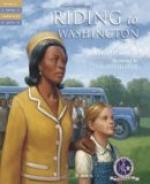“Well, Job,” I said, “they tell me that drowning is the pleasantest kind of death that there is.”
His face brightened up immediately, and he replied: “Thou’s tellin’ true, lad, an’ what’s more, I know all about it. If anybody wants to know what it’s like to be drowned, send ’em to Job Hesketh. If I’d as mony lives as an owd tom-cat, I’d get shut on ’em all wi’ drownin’.”
Job’s spirits were evidently restored, so I urged him to get on with his story.
“Well,” he continued, “I tugged an’ tewed as lang as I could, but my mouth began to get full o’ watter, my legs an’ airms were dead beat, an’ I reckoned that ‘twere all ower wi’ me. An’ then a fearful queer sort o’ thing happened me. I were i’ my father’s farm on t’ wold, laikin’ wi’ my brothers same as I used to do when I were a lile barn. An’, what’s more, I thowt it were my ninth birthday. You see, when I were nine yeer owd, my father gave me two gimmer lambs an’ I were prouder yon day nor iver I’d bin i’ my life afore. Weel, that were t’ day that had coom back; I knew nowt about drownin’, but theer was I teein’ a bit o’ ribbin’ about t’ lambs’ necks an’ givin’ ’em a sup o’ milk out o’ a bottle. An’ then I were drivin’ wi’ my father an’ mother i’ t’ spring-cart to Driffield markit. I’d donned my best clothes and my nuncle had gien me a new sixpenny-bit for a fairin’, an’ I were to buy choose-what I liked. Well, I were aimin’ to think how I sud spend t’ brass when I got to Driffield, when suddenly I weren’t a lile barn no more. I were Job Hesketh, vesselman at Leeds Steel Works, and I were drownin’ i’ t’ sea. I saw a boat noan so far away and I tried to holla to t’ boatman, but ’twere no use; all my strength had given out, an’ my voice were nobbut a groan. An’ then——”
Job paused, and I looked up into his face. A strange radiance had come over it, such as I had never seen there before. I had heard it said that all that was brightest in a man’s past life rises like a vision before his eyes when, in the act of drowning, his body sinks once, and then again, beneath the water, but I had never before confronted a man who could relate in detail what had happened to him. Then there was Job’s story about his return ticket to heaven, which puzzled me, and I urged him to continue his story.
“Thou’ll reckon I’m talkin’ blether,” he went on, “but I tell thee it’s true, ivery word on it. I’ll tak my Bible oath on it. All on a sudden I were stannin’ i’ a gert park, and eh! but there were grand trees. They were birk-trees, an’ their boles were that breet they fair glistened i’ t’ sunleet. An’ underneath t’ birks were bluebells, yakkers an’ yakkers o’ bluebells, an’ I thowt they were bluer an’ breeter nor ony I’d seen afore. There were all maks o’ birds i’ t’ trees—spinks an’ throstles an’ blackbirds—an’ t’ air aboon my head were fair wick wi’ larks an’ pipits singin’ as canty as could be. Weel, I followed along t’ beck-side while I com to a gert lake, wi’ lads an’




